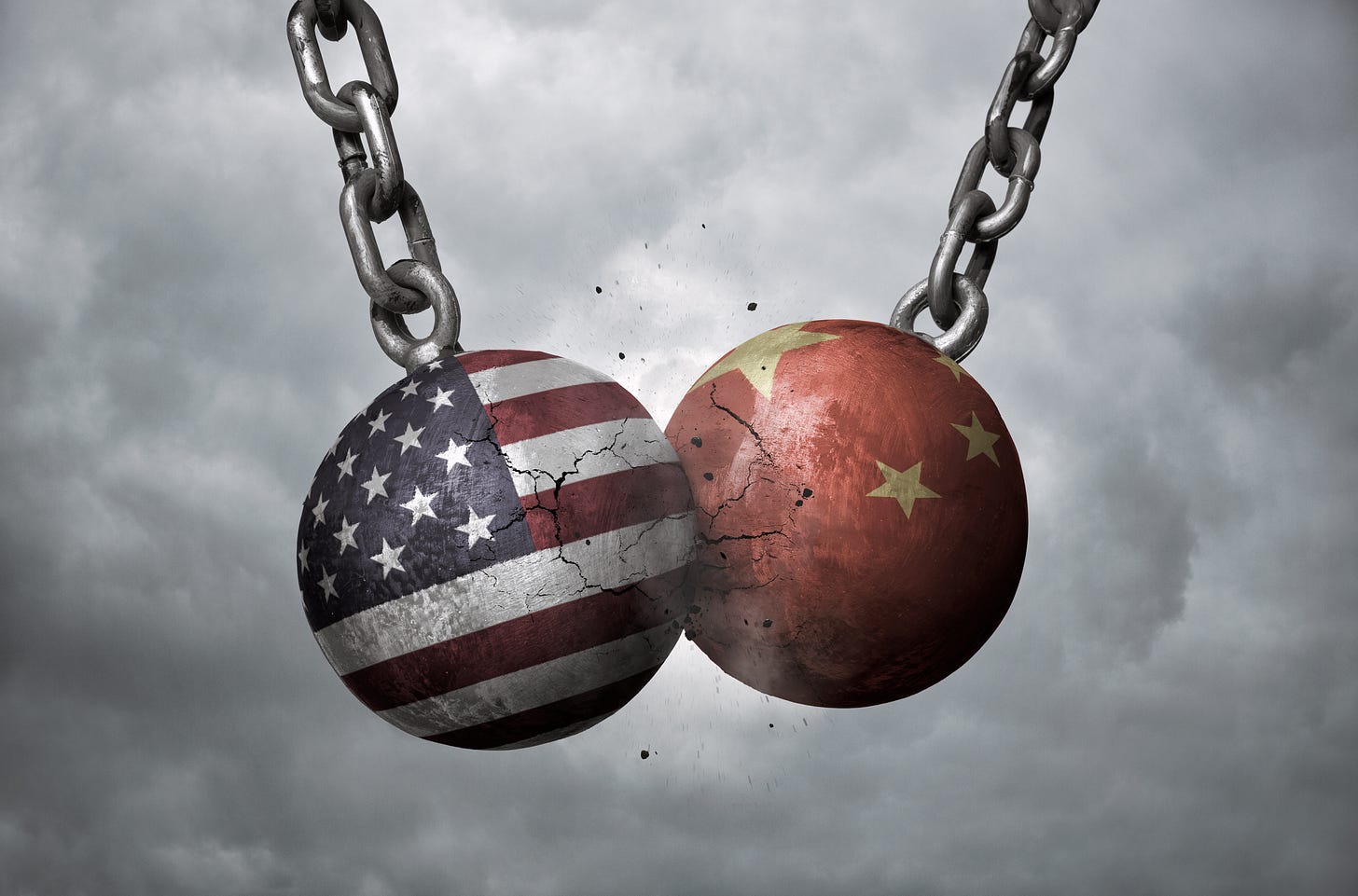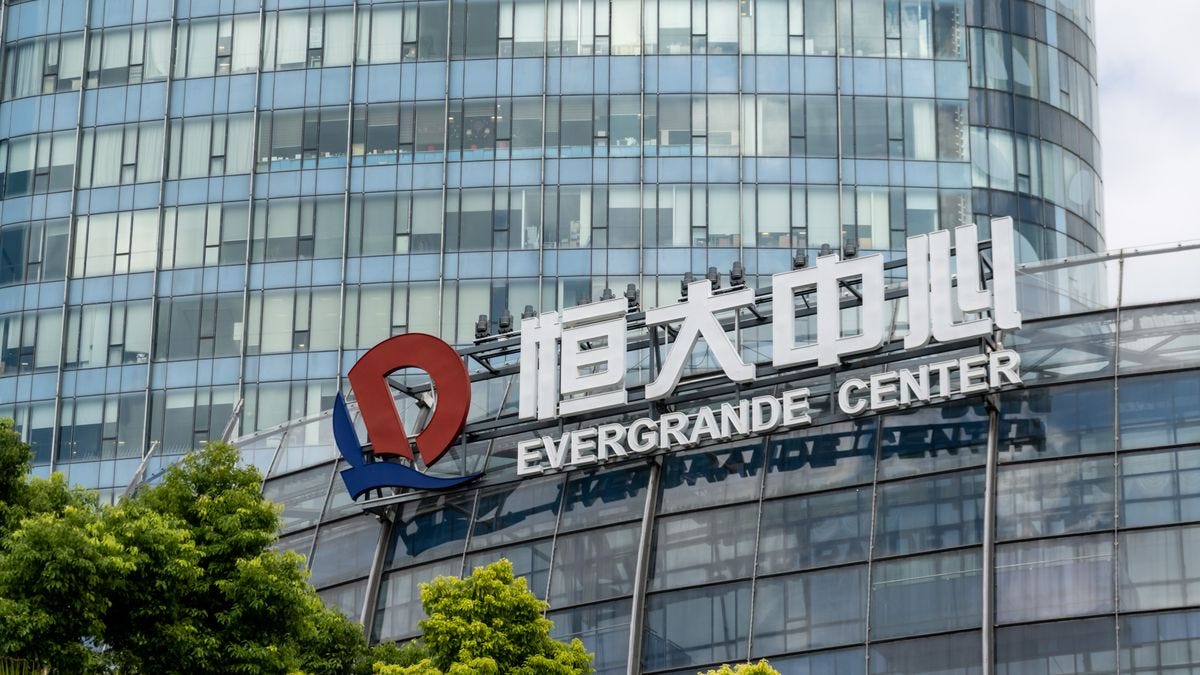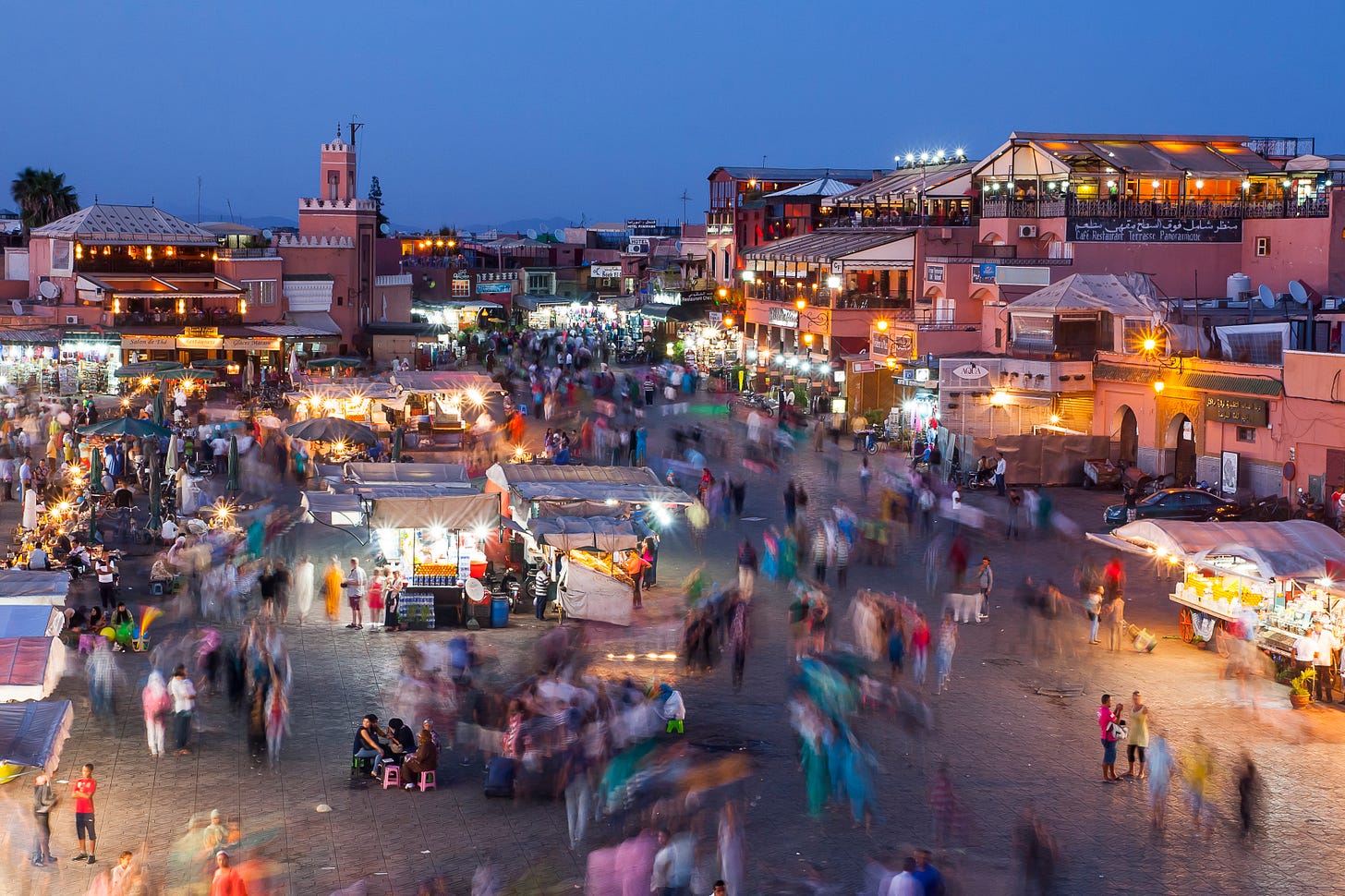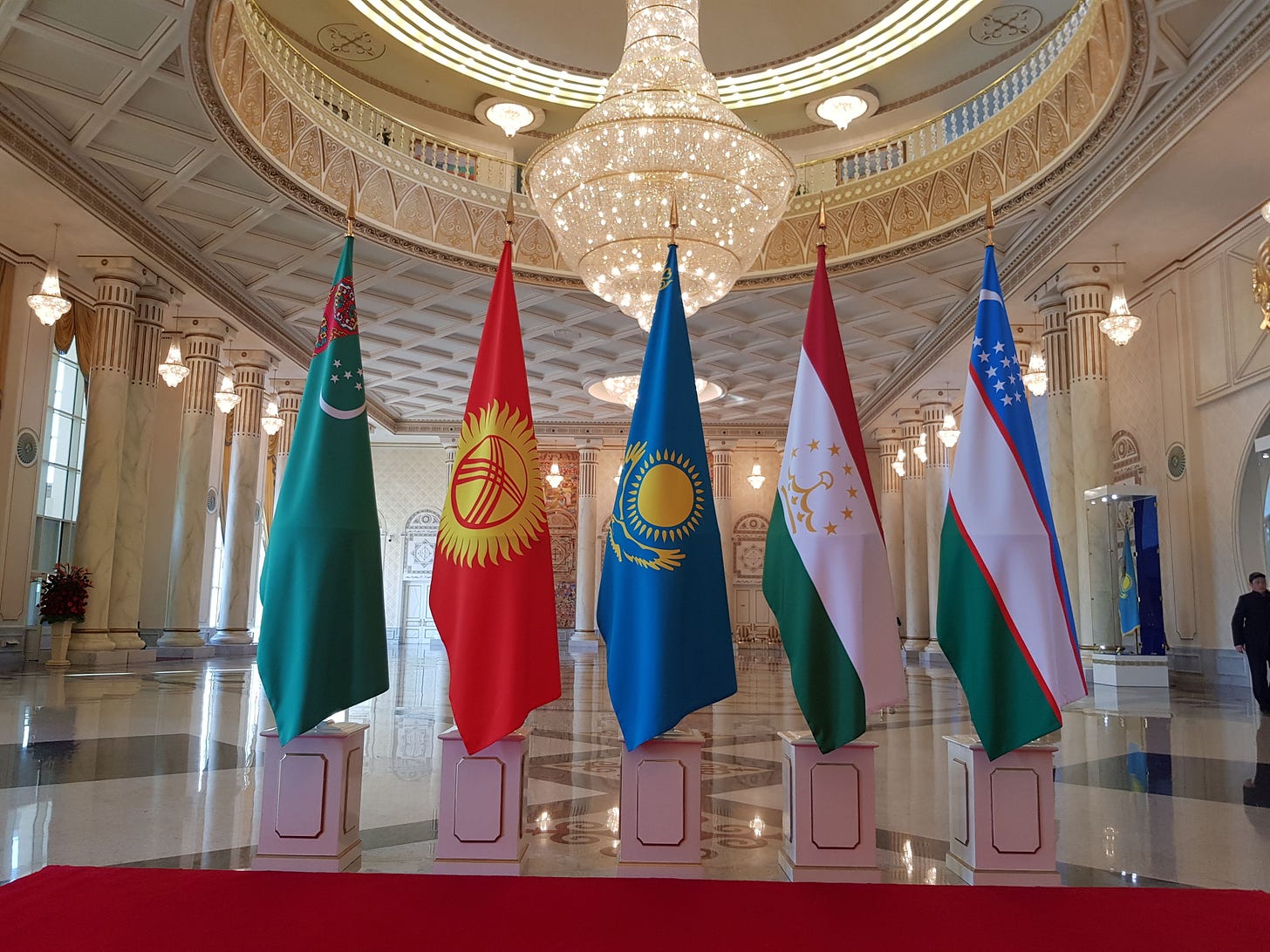Emerging Markets Monitor - July 25
US-China Tensions Rising, Pakistan IMF Deal Not a Panacea, China Property Stocks Remain Fragile, Morocco Plans EV Gigafactory, Central Asia Leader Summit Fizzles
The Top 5 Stories Shaping Emerging Markets from Global Media - July 25
US Military Chief Warns of ‘Significant’ Increase in Chinese Aircraft Intercepts
Financial Times
“The US military’s top officer said China had become more aggressive in intercepting military aircraft and undertaking unsafe aerial manoeuvres over the past five years.”
“General Mark Milley, chairman of the US joint chiefs of staff, said China was conducting ‘dangerous intercepts’ against American military aircraft and ships and was also targeting Canada, Australia, Japan and Washington’s other allies.”
“‘The number of Chinese intercepts at sea and in the air has increased significantly over five years,’ Milley told the Financial Times and The Associated Press aboard his aircraft as he flew to Asia for visits to Indonesia and Australia.”
“The Chinese military has become ‘noticeably more aggressive in this particular region’, he said. Milley declined to provide specific figures about the total number of incidents, but said the volume of unsafe intercepts — such as when a Chinese fighter jet comes close to a US aircraft — had risen in ‘equal proportion’.”
“…Milley said he discussed unsafe intercepts when he spoke to his Chinese counterpart, General Li Guocheng, in the first call between the generals since US president Joe Biden took office.
“…Intercepts are just one of many contentious issues in the US-China relationship, which is in its worst state since the countries established diplomatic relations in 1979. Biden and Chinese president Xi Jinping are expected to hold a call in the coming days to discuss a range of issues including Taiwan, which has become another flashpoint.”
“Beijing warned the US after the FT reported that Nancy Pelosi, Speaker of the US House of Representatives, would next month visit Taiwan, a country over which China claims sovereignty.”
“China has signalled that it might respond with more than rhetoric if Pelosi visits Taipei, sparking concerns that Beijing could take military action, such as intercepting her plane with fighter jets. The White House is worried that the visit has the potential to spark a crisis across the Taiwan Strait.” Demetri Sevastapulo reports.
Pakistan IMF Deal Offers Economic Pain Relief But No Panacea
Nikkei Asia
“Pakistan stepped away from the brink of bankruptcy by striking a deal with the International Monetary Fund to resume a $6 billion loan program this month. But experts warn that there is much more work to do, and that political instability poses a major obstacle to a true economic revival.”
“Islamabad on July 14 reached a staff-level agreement with the IMF to restart their stalled Extended Fund Facility. Pakistan will get a first tranche of $1.17 billion from the IMF in the coming weeks, which could pave the way for securing further loans from other lenders.”
“Nevertheless, the country is facing heavy foreign exchange pressure, with troubling echoes of the crisis that has gripped South Asian neighbor Sri Lanka this year.”
“Pakistan needs $41 billion in foreign exchange over the next 12 months, according to Finance Minister Miftah Ismail. ‘We have to repay $21 billion loans, need $12 billion current-account deficit financing and another $8 billion to maintain foreign exchange reserves,’ Ismail said during a budget seminar last month.”
“The agreement with the IMF was finalized at a time when -- due to a combination of political instability and the strong U.S. dollar -- the Pakistani rupee has been hitting all-time lows against the greenback. Ratings agency Fitch downgraded Pakistan's outlook from ‘stable’ to ‘negative’ earlier this week, after which the rupee touched a low of about 225 to the dollar.” Nikkei Asia reports
Chinese Property Stock Rebound Built on Fragile Confidence; Evergrande Fires Top Leadership
South China Morning Post and Hurriyet Daily News
“Investors who profited from bets on rock-bottom property stocks have realised the new-found optimism in the industry is simply too fragile. A mortgage boycott against stalled projects has swiftly wiped out all of this year’s winnings.”
“An index tracking 112 listed mainland developers including China Vanke, Poly Developments and China Merchants Shekou Industrial Zone has surrendered all of the gain this year, after rising as much as 25 per cent between January and early April, according to data provider Shanghai DZH.”
“In Hong Kong, the Hang Seng Mainland Property Index has declined 12 per cent over the past four weeks, when homebuyers in more than 90 cities threatened to stop servicing their loans in protest. Huang Hai, a star manager at Wanjia Asset Management, slashed his holding of property stocks last quarter, while some brokers turned bearish on the sector outlook.” SCMP reports.
Meanwhile, Hurriyet Daily News reports:
“Embattled Chinese real estate giant Evergrande has ousted its CEO and CFO after an internal investigation into why banks seized over $2 billion from the firm’s property services arm, the company has said.”
“Embattled Chinese real estate giant Evergrande has ousted its CEO and CFO after an internal investigation into why banks seized over $2 billion from the firm’s property services arm, the company has said.”
Morocco Plans to Set Up EV Battery Gigafactory
Asharq Al-Awsat
“Morocco is negotiating with electric vehicle battery manufacturers to set up a plant in the country to mesh with its existing automotive sector and cobalt output.”
“‘We hope to sign a deal for the plant before the end of this year,’ Industry Minister Ryad Mezzour said in an interview with Reuters on Thursday, but declined to name the companies. He also did not say how much investment it would require, but referred to it as a ‘Gigafactory,’ a term widely used for very big production facilities.”
“…Demand for such batteries is growing outside and within Morocco, where Citroen plans to double its production capacity within two years from 50,000 supermini electric cars, Mezzour noted.”
“Morocco is home to production plants of Renault and Stellantis with a combined production capacity of 700,000. ‘We are targeting one million within next three to four years,’ Mezzour said.
“Exports by some 250 Moroccan automotive manufacturers and part makers topped the kingdom’s industrial exports over the past seven years, surpassing phosphate sales. Up to May this year, Morocco’s automotive sector sales stood at $4.13 billion, up 24%.”
“The first- and second-best selling cars in Europe, Dacia Sandero and Peugeot 208, respectively, are both made in Morocco, Mezzour remarked.” Asharq Al-Awsat reports.
Much-Touted Central Asia Leaders Summit Fizzles
Eurasianet
“The get-together of Central Asian presidents on the northern shore of Kyrgyzstan’s Issyk-Kul Lake [last] week had been billed as a historic chapter in the march toward regional integration.”
“In the end, though, the event was a little more downbeat. The world beyond Central Asia, as most of the five presidents described it in their speeches, is a place brimming with threats and looming catastrophe.”
“And when the time came for the leaders to sign off on the document that was intended to cap the meeting – the Treaty of Friendship, Good Neighborliness and Cooperation for the Development of Central Asia in the 21st century – two of them demurred.”
“Tajikistan and Turkmenistan have yet to resolve their own internal procedures before they can go ahead with the treaty, according to the Kyrgyz government, which organized the gathering. This was unpersuasive seeing as both those countries are deeply authoritarian, meaning that the president’s word is usually the only one that counts.”
“The Friendship Treaty was in its inception the brainchild of Kazakhstan’s former president Nursultan Nazarbayev, who first advanced the proposal at the second consultative meeting of heads of state of Central Asia in the Uzbek capital, Tashkent, in November 2019. What took place in Cholpon-Ata on July 20 was the fourth consultative meeting to date.”
“…That sort of enhanced coordination was intended to be the most important fruit of a treaty whose progress has for now stalled. Nothing in the document hints at the idea of creating a permanent body that would either parallel or compete against existing organizations, such as the Russian-led Eurasian Economic Union trading bloc, of which Kazakhstan and Kyrgyzstan are members, or the Beijing- and Moscow-dominated Shanghai Cooperation Organization, which includes all but Turkmenistan among its Central Asian members.”
“A more fitting analogy is the Visegrad Group, a club of Central European nations that was intended in part, when it appeared in the early 1990s, to harmonize the economies of its members in advance of accession to the European Union.” Eurasianet reports.
“Stop acting so small. You are the universe in ecstatic motion.” - Rumi







